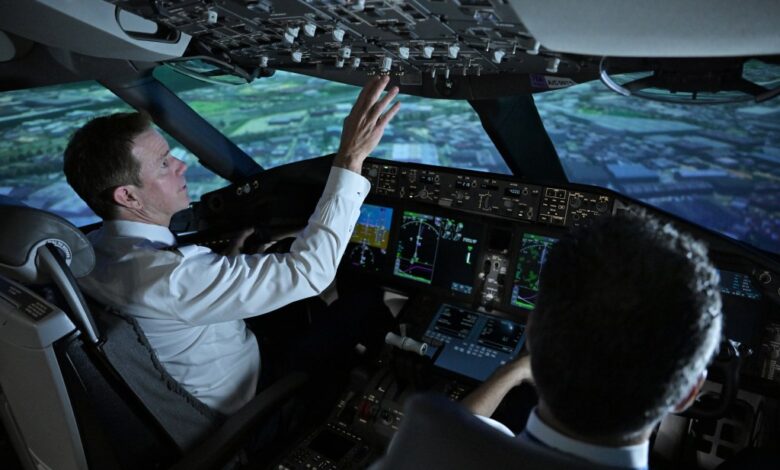United Airlines training manager says pilots can handle communication outages

United Airlines Captain Miles Morgan is set to fly into Newark, N.J., airport in a few weeks on his way to Greenland. Despite recent brief outages at the air traffic control center handling the airport, Captain Morgan remains unfazed.
“I completely understand why people may feel anxious. My friends and family often reach out to me with similar concerns,” Morgan shared.
However, Morgan reassured that pilots are not nervous. As a 30-year veteran pilot and managing director of United Airlines’ flight training center in Denver, he emphasized that handling a loss of communication with air traffic control is a fundamental skill that pilots are trained for from the start of their careers.
Recent communication outages at Newark Liberty International Airport have put the nation’s air traffic control system and the Federal Aviation Administration under scrutiny. The most recent outage occurred on Monday at the Philadelphia air traffic control center, responsible for overseeing flights at Newark Liberty International Airport.
While the incidents have led to flight delays and cancellations, no serious safety risks have been reported. However, the outages have underscored the ongoing challenges posed by aging equipment and staffing shortages.
Members of Colorado’s congressional delegation have urged Transportation Secretary Sean Duffy and Acting FAA Administrator Chris Rocheleau to address the infrastructure and staffing issues at air traffic control centers nationwide promptly. They have also called for the reinstatement of FAA employees laid off as part of federal staff reductions.
Chad Kendall, an associate professor of aviation and aerospace science at Metropolitan State University of Denver, highlighted that the communication lapses signify the need for systemwide improvements and modernization rather than posing a direct safety threat.
Kendall emphasized that both planes and air traffic control centers have redundant systems in place to serve as backups in case of primary component failures. Despite the recent communication outage at the Denver Air Route Traffic Control Center, pilots and air traffic controllers are well-prepared to handle such contingencies through ongoing training and protocols.
‘Layers of redundancy’
Captain Morgan and his crew recently experienced a simulated close encounter in a high-tech flight simulator at United’s Flight Training Center in Denver. The exercise showcased the importance of multiple layers of redundancy in ensuring safe flight operations.
Captain Morgan highlighted the significance of having redundant systems in place to ensure the safety of flights. He emphasized that even in the event of a communication lapse, pilots are trained to switch to alternative frequencies and monitor emergency radio channels as part of standard procedures.
Morgan, with over 17,000 hours of flying experience, emphasized that dealing with communication challenges is a fundamental aspect of pilot training and United’s operational protocols.
United Airlines conducts comprehensive training for all its approximately 18,000 pilots at the Denver center. The recently expanded training facility accommodates up to 600 pilots daily and plays a crucial role in enhancing safety and efficiency within the airline.
Looking ahead, Transportation Secretary Duffy’s proposed overhaul of the air traffic control system aims to address communication infrastructure and facility upgrades, signaling a positive step towards enhancing aviation safety and operations.
Stay updated on business news by subscribing to our Economy Now newsletter.





